Liberal Studies in Education
Discover the degree that makes a difference.
You’ll study a comprehensive curriculum, sharpen your teaching skills and become ready to lead in the diverse field of education.
Engage in learning — inside and outside of the classroom
As a student in our program, you’ll be able to apply your knowledge by completing field studies at neighborhood schools. Through courses like “Career Decisions in Education” or by exploring different areas of the field, we’ll help you discover your passion and provide the tools to succeed in your chosen career path.
Launch your future as an educator
You’ll master a range of subjects by studying the ways that children learn and develop. With Cal Lutheran’s small class sizes and the networking opportunities built into this program, you’ll walk away with a community you can lean on as you launch your career in education.
Expedite your path to teaching
You can save time and money by earning an expedited multiple-subject teaching credential or master’s degree through pathways developed in collaboration with the Graduate School of Education.
Cal Lutheran offers several program options to meet your needs, whether you are entering the university as a first-year student or transferring:
- Four-year Bachelor of Arts — A traditional four-year undergraduate program to earn your bachelor’s degree with guaranteed admittance to the teaching credential program in our Graduate School of Education. The credential program typically takes two to three additional semesters to complete. You can also earn a master’s degree in teacher leadership by completing three additional graduate-level courses. View the requirements for this pathway
- Integrated Credential Program — A combined four-year program where you will earn a bachelor’s degree and a multiple or single subject credential in four years. The pace of this program is more intense and will require you to take courses during the summer that may not be covered by your financial aid. After earning your credential, you can take three additional graduate-level courses to earn a master’s degree in teacher leadership. View the requirements for this pathway
- Two-year Path to Credentialing for Transfer Students — This program is designed for students transferring to Cal Lutheran with an Associate’s Degree for Transfer (ADT) in education or child development (with a minimum of 60 credits) from a community college. You will complete the requirements in your first year at Cal Lutheran to move into our Graduate School of Education’s teaching credential program in your second year. Your credential program will be completed in one year, so you will graduate with your bachelor’s degree and a multiple or single subject credential at the end of your second year. View the requirements for this pathway
Get your Certificate of Clearance
As a student in the Liberal Studies in Education program, you’ll apply for a Certificate of Clearance during your first semester at Cal Lutheran. This is required by California’s education code for all individuals prior to beginning classroom experience. Visit our Certificate of Clearance informational page to prepare for this critical step in your teaching career.
At a Glance
Degree Type
Bachelor of Arts
Department
Liberal Studies in Education
School/College
College of Arts and Sciences
Next Steps
Interested in this major? Here's what you can do next:
With challenging and relevant courses, outstanding faculty, small class sizes, and an emphasis on hands-on learning, the liberal studies in education program will position you to succeed in your chosen career.
Highlighted Courses
Get familiar with some of the courses you might take in this major.
LSED 362: Teachers and Teaching
This course will examine the historical, social, and cultural foundations of American education as seen through a historical narrative with an emphasis on the diversity of contemporary schooling. Students will be provided with an introduction to issues, trends, education theory and practice. Additionally, major philosophies of education, which have informed American education and how they affect schooling in a society of multiple cultures, will be explored.
Read descriptionLSED 382: Learners and Learning
The goal of the course is to identify and establish a mission and vision for teaching and learning, to introduce and explore significant issues in teaching and learning and provide information on pursuing credential requirements. The main emphasis of this course is a minimum of 60 hours of active service in a K-6 classroom where course content is applied in working with students.
Read descriptionLSED 402: Theories of Teaching and Learning
This course explores of the cognitive, linguistic, social, moral, emotional, and physical factors affecting development, academic success (encompassing academic achievement, students engagement and student well-being), and behavior in children and adolescents and the teaching and learning methods that support these goals.
Read descriptionLSED 408: Children’s Literature and Composition
The orienting principle is that every teacher is a teacher of reading. This course will include a focus on the necessity for teachers across all disciplines and grades to attend to dimensions of language development, linguistic diversity, and literacy learning in their classrooms. Examines how young children learn to read and write through their world of daily experiences.
Read descriptionLSED 414: Culturally Responsive Pedagogies
In this course, participants will gain the knowledge and skills to reach students who are culturally and racially different from them. Students will explore their own assumptions about race, class, and culture; and learn strategies for creating classrooms that are culturally inviting to all. Students also will learn principles of Culturally Responsive Teaching, including affirming students’ cultural connections, stressing collectivity as well as individuality, and managing the classroom with firm, consistent, caring control.
Read descriptionLSED 416: Educational Measurement and Assessment
Participants will investigate a number of topics related to assessment to develop professional competencies in relation to the philosophy, theory and pedagogical application of assessment practices for K-12 education. Students will also explore key educational assessment tools commonly used in psycho-educational student assessments that form the basis of student Individual Education Plans (IEPs), which teachers need to be familiar with in order to effective design instruction for students.
Read descriptionRecommended Minors
Want to add even more value to your degree? Consider one of these minors to gain a unique combination of skills and perspectives.
We offer hands-on opportunities that give you the freedom to explore your passion through real-world work and prepare for a fulfilling career.
-
Storytelling with 1st Graders
Superheroes, mystical creatures and shapes – these are just a few of the main characters that students in a first grade classroom at Cypress Elementary School developed for a special partnership with California Lutheran University students.
-
Experiential Learning
Our emphasis on active learning and interdisciplinary coursework prepares future educators to work in elementary learning environments and beyond. You’ll apply your knowledge by completing more than 300 hours of field study at neighborhood schools.
-
Professional Networking
After serving in classrooms at a partner school or program of your choice, you can graduate with a set of connections in the educational community who know your talents and will be eager to support your career journey.

The most important factor in helping students to discover their purpose is to create a collaborative and engaging learning community where students have many opportunities to explore questions that are meaningful and applicable to their real world experience. In doing so, they focus in on what is most important and ultimately discover their purpose.
Maureen Lorimer
Associate Professor
Graduates from our program seek careers as teachers and administrators in public, private, and parochial educational institutions.
Potential Careers
Instructional Coordinators
Develop instructional material, coordinate educational content, and incorporate current technology into instruction in order to provide guidelines to educators and instructors for developing curricula and conducting courses. May train and coach teachers. Includes educational consultants and specialists, and instructional material directors.
Read descriptionSecondary School Teachers, Except Special and Career/Technical Education
Teach one or more subjects to students at the secondary school level.
Read descriptionElementary School Teachers, Except Special Education
Teach academic and social skills to students at the elementary school level.
Read descriptionMiddle School Teachers, Except Special and Career/Technical Education
Teach one or more subjects to students at the middle, intermediate, or junior high school level.
Read descriptionHealth Education Specialists
Provide and manage health education programs that help individuals, families, and their communities maximize and maintain healthy lifestyles. Use data to identify community needs prior to planning, implementing, monitoring, and evaluating programs designed to encourage healthy lifestyles, policies, and environments. May link health systems, health providers, insurers, and patients to address individual and population health needs. May serve as resource to assist individuals, other health professionals, or the community, and may administer fiscal resources for health education programs.
Read descriptionSocial and Community Service Managers
Plan, direct, or coordinate the activities of a social service program or community outreach organization. Oversee the program or organization's budget and policies regarding participant involvement, program requirements, and benefits. Work may involve directing social workers, counselors, or probation officers.
Read descriptionTraining and Development Managers
Plan, direct, or coordinate the training and development activities and staff of an organization.
Read descriptionEducation Administrators, Kindergarten through Secondary
Plan, direct, or coordinate the academic, administrative, or auxiliary activities of kindergarten, elementary, or secondary schools.
Read descriptionEmployers
Some of the organizations our graduates work for include:
- ATI American TESOL Institute
- Conejo Valley Unified School District
- Cornerstone Community Church
- ELCA Division for Global Mission
- Holy Trinity Lutheran Church
- Los Angeles Unified School District
- Rancho Simi Recreation & Park Dist.
- Rolling Oaks Child Development Center
- Ventura Unified School District
- Westmark School
Graduate Schools
Our alumni have pursued advanced degrees at:
- California Lutheran University
- California Polytechnic State University
- California State University, Fullerton
- California State University, Northridge
- Johns Hopkins University
- Loyola Marymount University
- Seattle University
- University of Arizona
- University of California, Santa Barbara
- University of Colorado, Boulder
- University of Hawaii
- University of Rhode Island
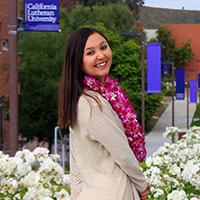
I most enjoyed having the opportunity to shadow in a multitude of grades as a part of my Liberal Arts in Education major at Cal Lutheran. It helped prepare me for a career in education by exposing me to the unique needs of children at different educational stages. It was an amazing experience because it helped me discover what grade I am most passionate about. I also was able to shadow multiple teachers and learn what teaching style aligned with my own educational values.
Stephanie Fallon '18
6th Grade Teacher, Simi Valley Unified School District
This page includes information from O*NET OnLine by the U.S. Department of Labor, Employment and Training Administration (USDOL/ETA). Used under the CC BY 4.0 license. Some occupations listed above may require a related graduate degree.
How We Prepare You for Success
We have 20,000+ employer contacts for jobs and internships, with over 200 listings posted each week.
Our excellent career counselors in the Career Services center will get in touch with you during your very first term on campus. They offer over 50 workshops each year on resume writing, interviewing, salary negotiations, applying to graduate schools, and other critical skills to help you begin your career successfully.
After you graduate from Cal Lutheran, you receive free access to Career Services for life, as a valued member of our alumni family.
of Cal Lutheran graduates find a job or enroll in graduate school within nine months
We work with students and families to make sure everyone who is admitted to Cal Lutheran can afford it.
Tuition & Fees
You and your family might have questions about how you’ll cover the costs of college. We can tell you this — it costs less than you think.
Scholarships & Grants
We offer a range of awards based on academic merit and financial need. This is money that does not need to be repaid.
Financial Aid
If you're new to the financial aid process, you probably have a lot of questions. But don't worry — we're here to help guide you all the way.
Let us know and we'll send you information about our academics, campus life, the admission process, and more!
Level Up Your College Search
Check out our college success guides to help you navigate the search process.
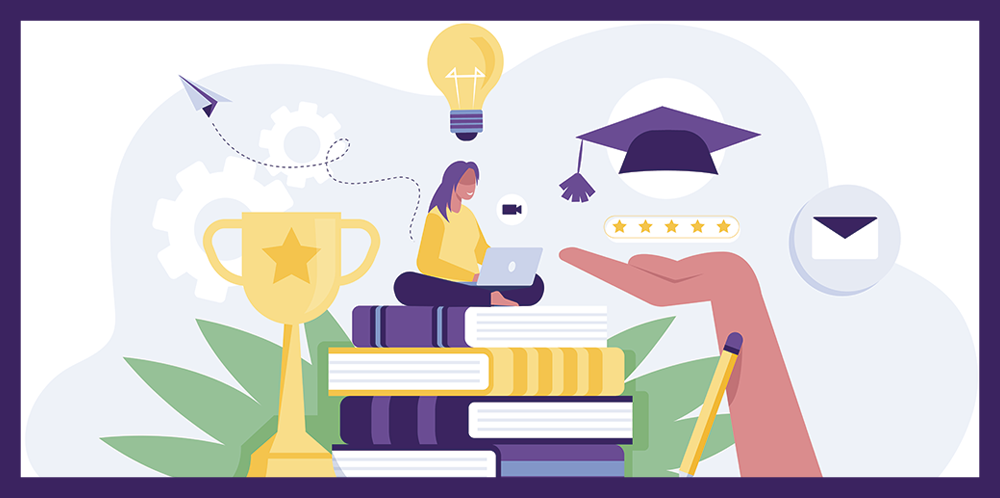
5 Tips for Applying to College
Learn how to look good when applying to colleges, with personal tips to stand out from Cal Lutheran admission counselors.
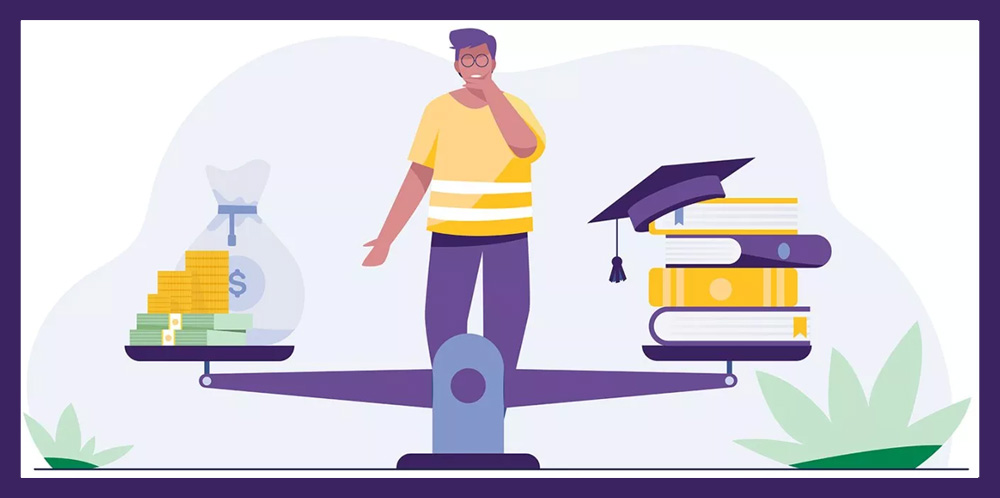
How to Afford College
Read this guide to minimize costs as you save for college during high school — learn all about scholarships, financial aid, FAFSA, and more!
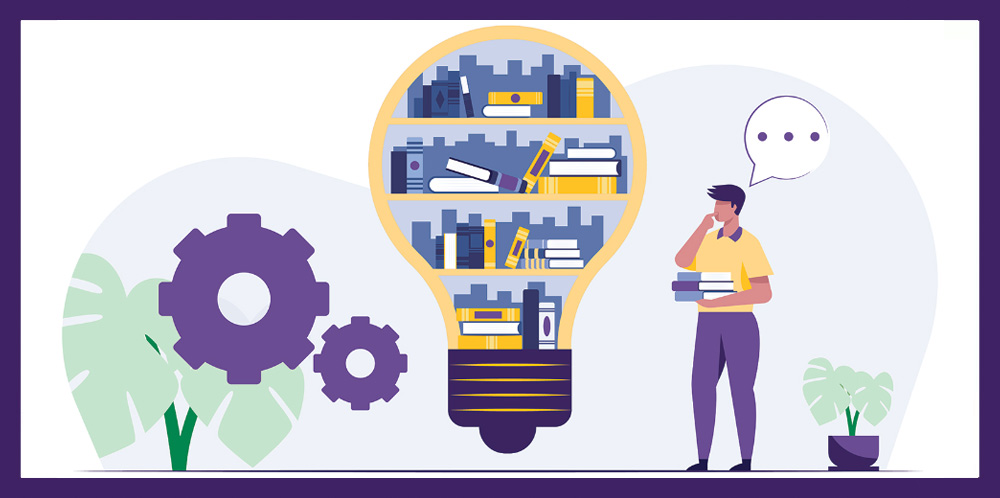
How to Choose a College Major
Your major will be a significant part of your academic experience. How do you pick the right one?
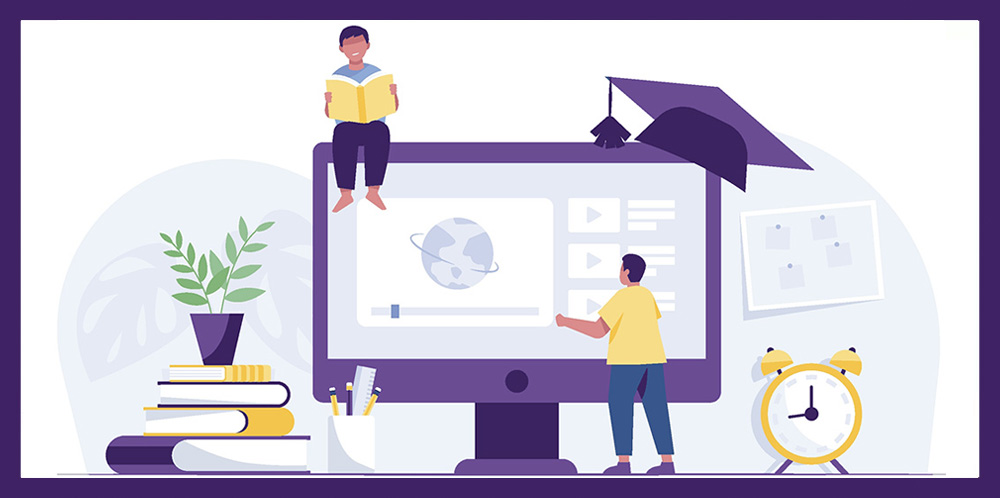
5 Key Advantages of a Liberal Arts Education
Are the liberal arts still worth studying in today's world? If you want a future-proof college education — absolutely.